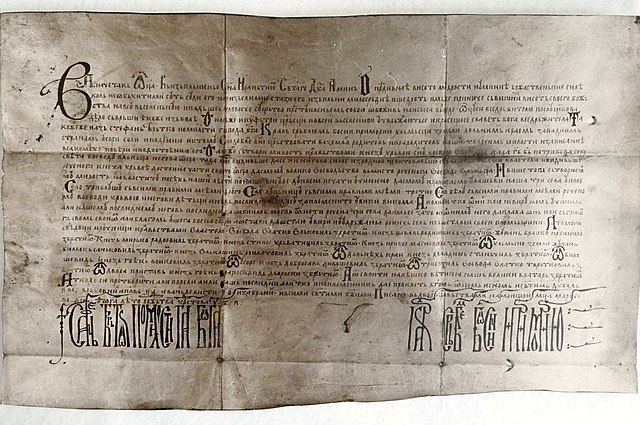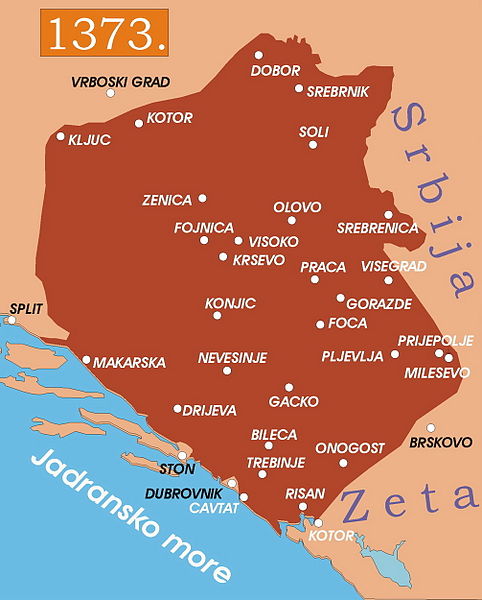Kulin was the Ban of Bosnia from 1180 to 1204, first as a vassal of the Byzantine Empire and then of the Kingdom of Hungary, although his state was de facto independent. He was one of Bosnia's most prominent and notable historic rulers and had a great effect on the development of early Bosnian history. One of his most noteworthy diplomatic achievements is widely considered to have been the signing of the Charter of Ban Kulin, which encouraged trade and established peaceful relations between Dubrovnik and his realm of Bosnia. His son, Stephen Kulinić succeeded him as Bosnian Ban. Kulin founded the House of Kulinić.
Ban Kulin
Copy B of the Charter of Ban Kulin.
The Banate of Bosnia, or Bosnian Banate, was a medieval state based in what is today Bosnia and Herzegovina. Although Hungarian kings viewed Bosnia as part of Hungarian Crown Lands, the Banate of Bosnia was a de facto independent state for most of its existence. It was founded in the mid-12th century and existed until 1377 with interruptions under the Šubić family between 1299 and 1324. In 1377, it was elevated to a kingdom. The greater part of its history was marked by a religiopolitical controversy revolving around the native Christian Bosnian Church condemned as heretical by the dominant Chalcedonian Christian churches, namely the Catholic and Eastern Orthodox churches, with the Catholic Church being particularly antagonistic and persecuting its members through the Hungarians.
Kulin Ban's plate from 1193, found in Biskupići
Charter of King Tvrtko I Kotromanić, written in Moštre
The Banate of Bosnia in 1373
Charter of Ban Kulin, trade agreement between Bosnia and Republic of Ragusa





